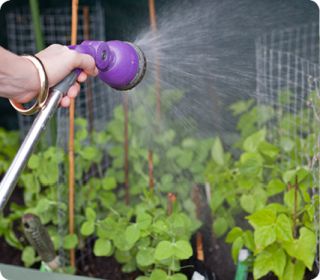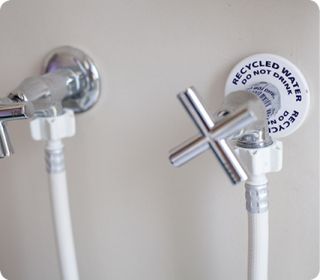DRINKING WATER overview


Wastewater is a fantastic resource. New technology means we can treat (or clean) our wastewater to such a high standard that we can reuse it in homes and businesses to flush toilets, wash clothes, water gardens and for irrigation. This means we use less of our precious drinking water.
Homes connected to our recycled water (dual reticulation) can reduce their use of drinking water by approximately 40%. Businesses such as nurseries or turf farms can reduce it even further.
What’s more, it’s a drought proof source – so it can be used to water gardens, wash cars and support businesses even when we are in drought.
We have four wastewater treatment plants in the Ballina Shire and they all operate differently. Click on each plant for more information.
We collect around 3,000 megalitres of wastewater from around 14,000 homes and businesses every year. This is sent to our wastewater treatment plants where it is treated and cleaned before being reused as recycled water or released back into the environment as treated wastewater.
Ballina Shire Council has to meet strict guidelines about the quality of treated wastewater (recycled water and released water) and this is monitored by the NSW Environment Protection Authority (EPA) and the NSW Office of Water.
Because of the small size of our population and our normally high rainfall we cannot use all our recycled water in our gardens, homes and businesses.
Whilst we do irrigate sporting fields and public areas we still need to release some of our treated wastewater back into the environment.
This is called waterway and ocean release. In the Ballina Shire we release treated wastewater into the Richmond River catchment and at Boulder Beach near Lennox Head.
The quality of the treated wastewater being released into the ocean is monitored by the NSW Environment Protection Authority (EPA) to ensure there are no threats to the environment.
Biosolids are organic materials that are a bi-product of the wastewater treatment process.
Biosolids are rich in nutrients such as phosphorous and nitrogen, and are used as a fertiliser for agriculture, composting, and improving soils.
Biosolids are produced under strict guidelines set out by the NSW Environment Protection Authority (EPA) and NSW Health. They are tested during and after production to ensure there is no threat to human health or the environment.
Not all biosolids are produced the same way. They are therefore analysed and graded to determine what they can be used for.
When biosolids are used in agriculture, soil samples are taken to make sure the correct amount of biosolids are being used for the types of crops being grown.
There are strict rules for how biosolids can be used. These include:
Click here for more information about biosolids

